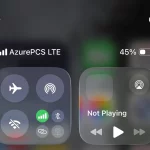Sponsored Links
UK Liberal Democrat Party Takes Tougher Line on Digital Economy Bill
Posted: 29th Mar, 2010 By: MarkJ
 The UK Liberal Democrat party appears to have taken a stronger position against some of the currently proposed Digital Economy Bill (DEB) measures. The bill aims to tackle illicit copyright file sharing (P2P) by broadband ISP users. Sadly it could also result in innocent people being forcibly disconnected from the internet, the unfair blocking of websites such as YouTube and damage access to public/open Wi-Fi networks.
The UK Liberal Democrat party appears to have taken a stronger position against some of the currently proposed Digital Economy Bill (DEB) measures. The bill aims to tackle illicit copyright file sharing (P2P) by broadband ISP users. Sadly it could also result in innocent people being forcibly disconnected from the internet, the unfair blocking of websites such as YouTube and damage access to public/open Wi-Fi networks.Until recently there had been a lot of frustration directed at the LibDem's for an apparent lack of noise over the Bill. Indeed some of their Lord's (Razzall and Clement-Jones) were even partly responsible for proposing a few of the worst measures (120A - website blocking).
However over the past couple of weeks, and thanks in part to opposition from within their own party, the LibDem stance appears to have been adjusted. They now oppose measures to block websites and have a tougher line on disconnection, albeit still failing to rule it out completely.
Now Bridget Fox (blog), a Liberal Democrat campaigner and Parliamentary candidate for Islington South and Finsbury, has published the full letter she received from Don Foster and the LibDem Department of Culture, Media and Sport. It spells out the parties current position in full (interesting bits are in bold).
The LibDem DEB Position Letter
The Digital Economy Bill is wide ranging and covers not just illegal file sharing and downloads from illegal websites, but issues such as a new remit for Channel 4, the classification of computer games, plans for switchover to digital radio and the future of regional news on ITV. We believe that these other parts of the Bill are extremely important and must be allowed to go into law.
We understand, however, that the proposals relating to website blocking and file sharing are controversial. Many people have expressed fears that the Bill will be rushed into law without proper examination.
We recognise the significant damage to the creative industries of downloading from illegal websites and initially sought measures to address this. However, there has been limited time for consultation and very little time before final decisions are made. We, therefore, do not believe that measures to address site blocking can reasonably be included in the Digital Economy Bill and we will not support any such measures.
There has been much longer and wider debate about actions to address illegal peer-to-peer file sharing. The Liberal Democrats are unconvinced of the merits of measures such as temporary account suspension or bandwidth throttling. This is why we have amended the Bill to ensure that they cannot be introduced without proper consultation and not until evidence has been produced to prove that they are the best available option. We also want to ensure that any measures will be subject to maximum scrutiny in parliament and that it will be possible to change them before a final decision is made.
The passing of the Bill will only be the start of a long process with many stages and many more opportunities for scrutiny. Indeed, the controversial parts of the Bill will need to be scrutinised and voted upon by the next parliament before they can be brought into law. Liberal Democrats MPs would not support these sections of the Bill without this process.
Already we have helped ensure significant changes to the Bill so that “technical measures” such as account suspension or bandwidth reduction will never be possible unless;
Liberal Democrats have agreed at their Spring Conference to establish a working party to address these issues. With at least a year before there will be any attempt to introduce “technical measures”, this will provide an opportunity for the party to consider the outcome of research into the effectiveness of the “soft measures” (letter writing).
However, despite the changes we have helped to achieve, we believe that there is still more to do in respect of the proposed system for tackling peer-to-peer file-sharing. We will take further action in the Commons to improve the legislation. For instance,
We believe there is inadequate protection in the Bill for schools, libraries, universities and other businesses offering internet access to the public.
When the Bill is passed, Ofcom will have to draw up a code regulating how the notifications system works. We do not think Ofcom will have enough time to draw up this code. If the public are to have confidence in the new system, Ofcom will need more than the six months it is given by the Bill.
We have already opposed – and helped defeat – government proposals to give itself powers to change copyright law almost at will. We will oppose any attempt to reinstate such powers in the Commons.
Our goal is to support the creative industries while at the same time fully acknowledging the issues of rights and freedoms for the individual that arise as internet technology advances.
There are some who believe that no action should be taken to address the problems caused by copyright infringements on the internet. While we accept that the initial proposals from the government and the much later proposals in respect of website blocking went too far, we do not believe that the problems can be ignored.
...
Our goal is to support the creative industries while at the same time fully acknowledging the issues of rights and freedoms for the individual that arise as internet technology advances. In other words action should only be taken if it is appropriate, proportionate and necessary in a democratic society.
The Digital Economy Bill is wide ranging and covers not just illegal file sharing and downloads from illegal websites, but issues such as a new remit for Channel 4, the classification of computer games, plans for switchover to digital radio and the future of regional news on ITV. We believe that these other parts of the Bill are extremely important and must be allowed to go into law.
We understand, however, that the proposals relating to website blocking and file sharing are controversial. Many people have expressed fears that the Bill will be rushed into law without proper examination.
We recognise the significant damage to the creative industries of downloading from illegal websites and initially sought measures to address this. However, there has been limited time for consultation and very little time before final decisions are made. We, therefore, do not believe that measures to address site blocking can reasonably be included in the Digital Economy Bill and we will not support any such measures.
There has been much longer and wider debate about actions to address illegal peer-to-peer file sharing. The Liberal Democrats are unconvinced of the merits of measures such as temporary account suspension or bandwidth throttling. This is why we have amended the Bill to ensure that they cannot be introduced without proper consultation and not until evidence has been produced to prove that they are the best available option. We also want to ensure that any measures will be subject to maximum scrutiny in parliament and that it will be possible to change them before a final decision is made.
The passing of the Bill will only be the start of a long process with many stages and many more opportunities for scrutiny. Indeed, the controversial parts of the Bill will need to be scrutinised and voted upon by the next parliament before they can be brought into law. Liberal Democrats MPs would not support these sections of the Bill without this process.
Already we have helped ensure significant changes to the Bill so that “technical measures” such as account suspension or bandwidth reduction will never be possible unless;
1. copyright infringers are notified by letter, without any risk of their internet connection being affected, for at least a year.We have also urged the music, film and videogames industries to work more urgently to develop easy and affordable ways to legally access their products in the hope that, combined with “soft measures” and an effective education campaign, disconnection is never required.
2. an evaluation of the effectiveness of such “soft measures” is undertaken.
3. an evaluation of the need for, and likely effectiveness of, technical measures has been completed.
4. further consultation has taken place.
5. proposed legislation is brought before parliament for decision, and.
6. any process to disconnect users explicitly assumes their innocence until they are proven guilty.
Liberal Democrats have agreed at their Spring Conference to establish a working party to address these issues. With at least a year before there will be any attempt to introduce “technical measures”, this will provide an opportunity for the party to consider the outcome of research into the effectiveness of the “soft measures” (letter writing).
However, despite the changes we have helped to achieve, we believe that there is still more to do in respect of the proposed system for tackling peer-to-peer file-sharing. We will take further action in the Commons to improve the legislation. For instance,
We believe there is inadequate protection in the Bill for schools, libraries, universities and other businesses offering internet access to the public.
When the Bill is passed, Ofcom will have to draw up a code regulating how the notifications system works. We do not think Ofcom will have enough time to draw up this code. If the public are to have confidence in the new system, Ofcom will need more than the six months it is given by the Bill.
We have already opposed – and helped defeat – government proposals to give itself powers to change copyright law almost at will. We will oppose any attempt to reinstate such powers in the Commons.
Our goal is to support the creative industries while at the same time fully acknowledging the issues of rights and freedoms for the individual that arise as internet technology advances.
There are some who believe that no action should be taken to address the problems caused by copyright infringements on the internet. While we accept that the initial proposals from the government and the much later proposals in respect of website blocking went too far, we do not believe that the problems can be ignored.
...
Our goal is to support the creative industries while at the same time fully acknowledging the issues of rights and freedoms for the individual that arise as internet technology advances. In other words action should only be taken if it is appropriate, proportionate and necessary in a democratic society.
Unfortunately there's still far too much ambiguity over their support for the disconnection policy, which many believe is both technically and practically unworkable. The bill fails to understand the structure of computer networks and ultimately makes the owner of said connection responsible, which in shared environments presents a problem.
On the bright side there's now a central line against web-blocking, which appears to be the most specific and firmest part that we could pull from Dan Fosters above letter.
Search ISP News
Search ISP Listings
Search ISP Reviews
Latest UK ISP News
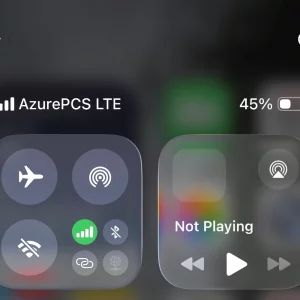



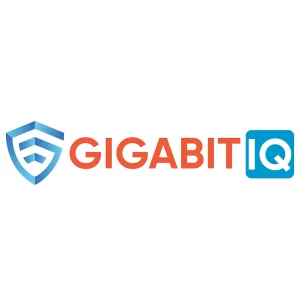
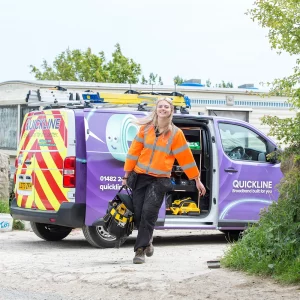
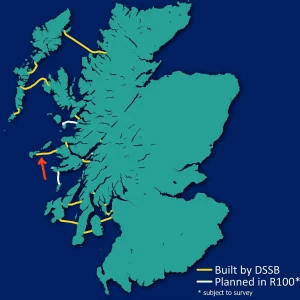

Cheap BIG ISPs for 100Mbps+
150,000+ Customers | View More ISPs
Cheapest ISPs for 100Mbps+
Modest Availability | View More ISPs
Latest UK ISP News
Helpful ISP Guides and Tips
Sponsored Links
The Top 15 Category Tags
- FTTP (6886)
- BT (3911)
- Politics (3108)
- Business (2814)
- Openreach (2691)
- Building Digital UK (2530)
- Mobile Broadband (2515)
- Statistics (2155)
- FTTC (2150)
- 4G (2126)
- Virgin Media (2053)
- Ofcom Regulation (1794)
- 5G (1771)
- Fibre Optic (1615)
- Wireless Internet (1614)
Sponsored
Copyright © 1999 to Present - ISPreview.co.uk - All Rights Reserved - Terms , Privacy and Cookie Policy , Links , Website Rules








